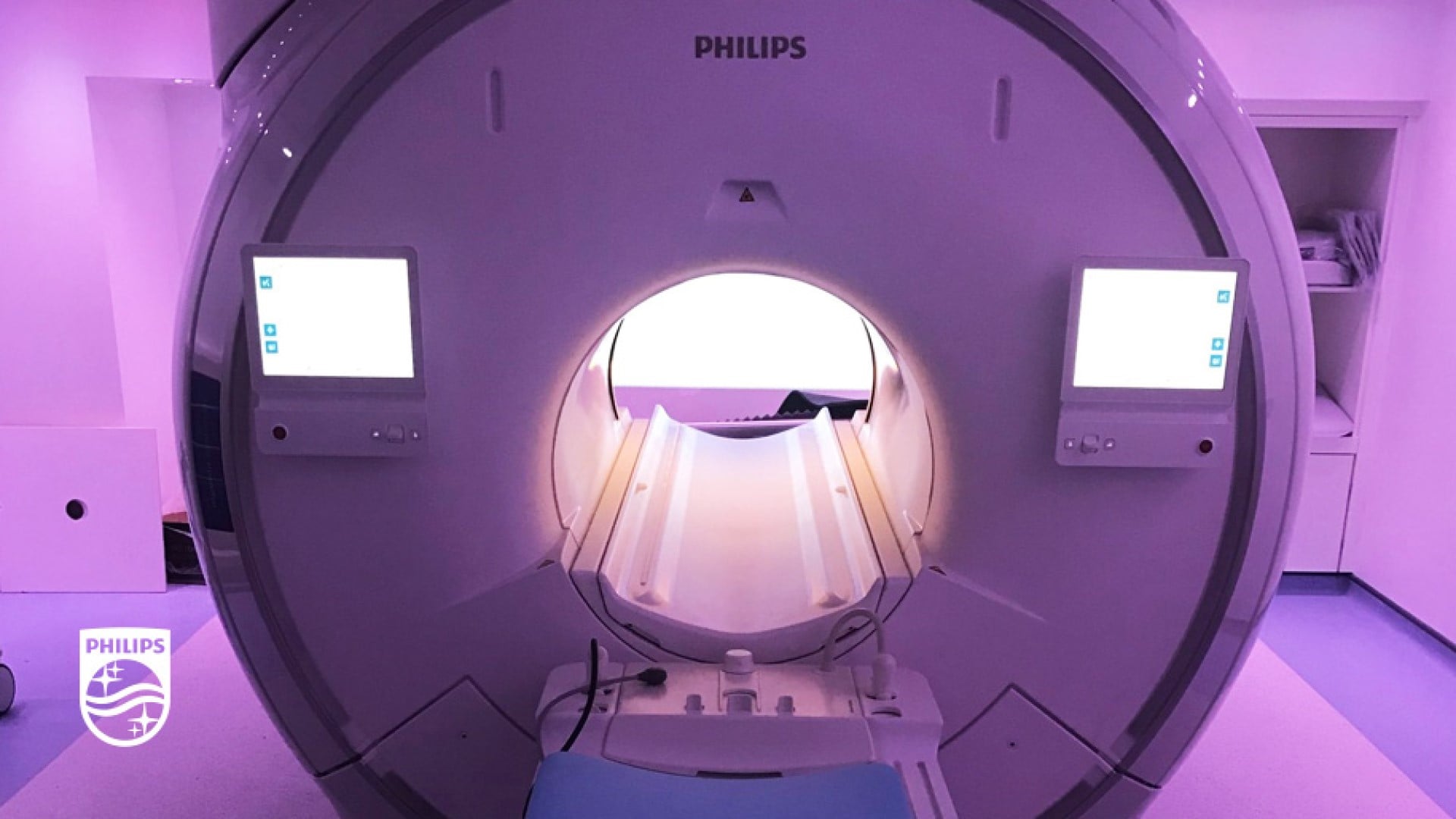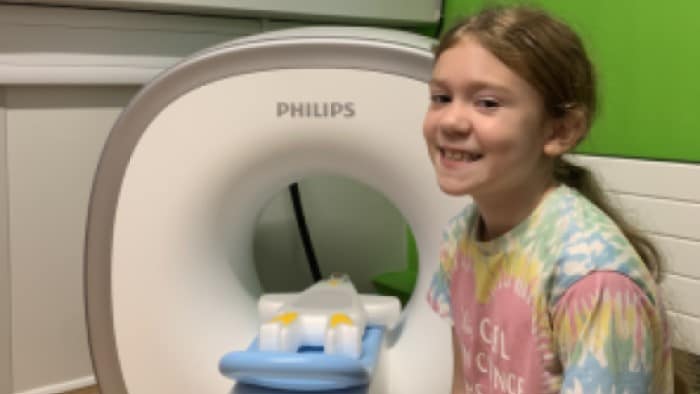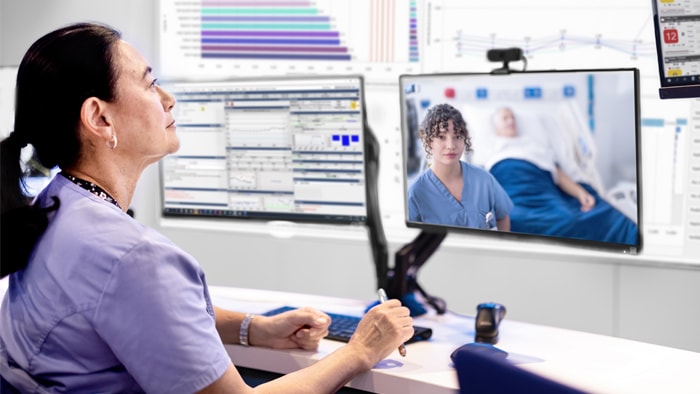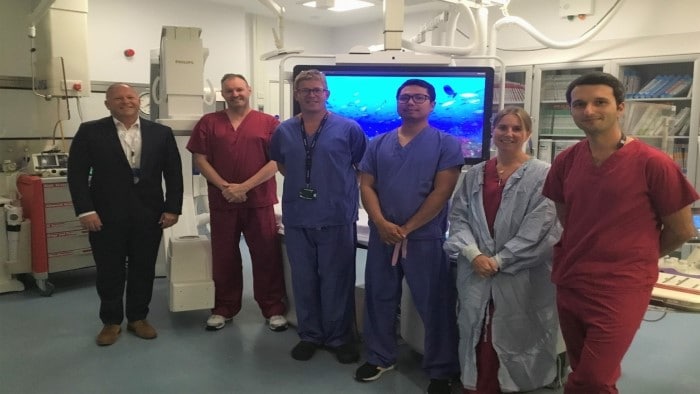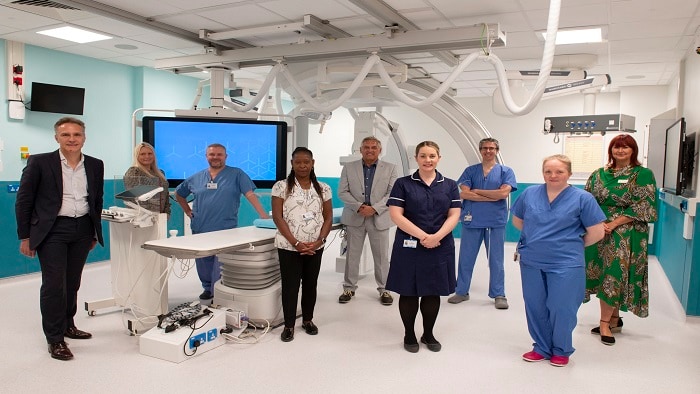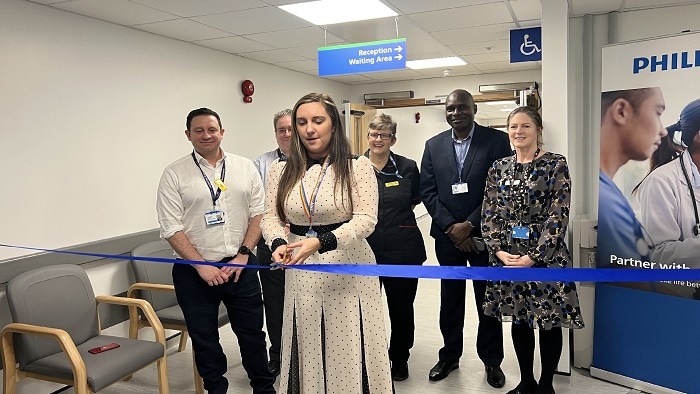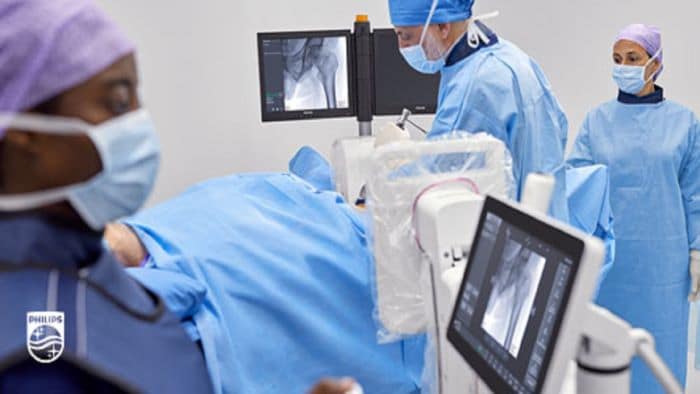Jul 16, 2019
Poole Hospital the first NHS Trust to use helium freei MR technology, revolutionising current practice by virtually eliminating dependency on an irreplaceable natural resource
First UK use of Philips’ helium-free BlueSeal technology could save the Trust and environment 1,700 litres of liquid heliumii, an irreplaceable and finite natural resource with a supply cost to the health system as a whole of over nine million poundsiii,iv
Ingenia Ambition X system can also speed up exam times by up to 50% when combined with Compressed Sense technology, so patients spend less time being scanned with no compromise to image qualityv
Guildford, United Kingdom – Royal Philips (NYSE: PHG, AEX: PHIA) From July 15th Poole Hospital NHS Foundation Trust will be the first UK hospital to introduce a new kind of scanner, the Philips Ingenia Ambition X 1.5T MR - the UK’s first MR system to enable helium-free operations. This break-through technology significantly reduces the chance of potentially lengthy and costly disruptions caused by liquid helium storage challenges, and could change the industry’s relationship with helium by moving from the largest consumervi to potentially helium free.
As health budgets and services continue to remain tested by an ongoing increase in service demand, improvements in the productivity of scanners and reductions in their resource footprint will become increasingly important considerations for healthcare providers when choosing an imaging system. The Ingenia Ambition X has been designed to meet these needs. Being helium-free and therefore lightweight, it does not need to be installed in reinforced rooms with complex venting systems, giving Trusts more freedom when planning where their MR departments and technology are placed.
Sustainable MRI
“We are very proud to be first NHS trust in the UK to offer our patients this breakthrough MR technology,” said David Reed, MRI Superintendent, Poole Hospital NHS Foundation Trust. “The Ingenia Ambition X will not only ensure high quality diagnostic care but it could also all but eradicate potentially costly disruptions to service arising from loss of helium should a machine lose its magnetism, referred to as quenching. With MR technology being a high-level investment that needs frequent use to ensure return on investment, removing this problem is of great appeal to the team while knowing that, vitally, it will support us to see more patients more quickly, without compromising quality. This is a new approach to diagnostic imaging and exactly the kind of service we are proud to bring to our community.” “The MRI was invented in the UK, so it’s fitting that today the UK is introducing another imaging first at Poole Hospital NHS Foundation Trust,” said Simon McGuire, Philips UKI Health Systems Lead. “Philips has long been committed to making the world both healthier and more sustainable through meaningful innovation, and these values come together in the Ingenia Ambition X. Helium is a finite resource, with a large proportion being used in MR imaging scanners across the world. I am proud that we can offer this breakthrough technology that not only supports more patients in getting the care they need but also does so in such a way that enables greater respect for the limited resources on Earth. We’re looking forward to strengthening our relationship with the team at Poole, and bringing a new era of MR to the Trust.”
i The Ingenia Ambition 1.5T contains less than 0.5% of the helium of a conventional system and this is permanently sealed inside the device – record on file with Philips Healthcare ii Summitsourcefunding, How Helium is Used With MRI machines, available here: http://summitsourcefunding.com/blog/helium-used-mri-machines/ [last accessed June 2019] Figure for references iii and iv calculated by multiplying cost in Europe of liquid helium per litre (reference iii) by 2014 number of MRI systems in UKI (reference iv) based on average MRI consumption of liquid helium (reference ii) iii Dillon, N (2007), Price of Liquid Helium, The Physics Factbook, available here: https://hypertextbook.com/facts/2007/NadyaDillon.shtml [last accessed June 2019] iv Statista.com, Total number of magnetic resonance imaging (MRI) units in the United Kingdom from 2004 to 2014, available here: https://www.statista.com/statistics/473302/number-of-magnetic-resonance-imaging-units-united-kingdom-uk/ [last accessed June 2019] v Using Compressed SENSE technology and compared to Philips exams without Compressed SENSE – record on file with Philips Healthcare vi Forbes.com, Why We Are Running Out of Helium And What We Can Do About It, available here: https://www.forbes.com/sites/quora/2016/01/01/why-we-are-running-out-of-helium-and-what-we-can-do-about-it/#4ade5c2357ad [last accessed June 2019] vii The Ingenia Ambition 1.5T contains less than 0.5% of the helium of a conventional system and this is permanently sealed inside the device – record on file with Philips Healthcare
About Royal Philips
Royal Philips (NYSE: PHG, AEX: PHIA) is a leading health technology company focused on improving people's health and enabling better outcomes across the health continuum from healthy living and prevention, to diagnosis, treatment and home care. Philips leverages advanced technology and deep clinical and consumer insights to deliver integrated solutions. Headquartered in the Netherlands, the company is a leader in diagnostic imaging, image-guided therapy, patient monitoring and health informatics, as well as in consumer health and home care. Philips generated 2018 sales of EUR 18.1 billion and employs approximately 77,000 employees with sales and services in more than 100 countries. News about Philips can be found at www.philips.co.uk/a-w/about/news/home.html
